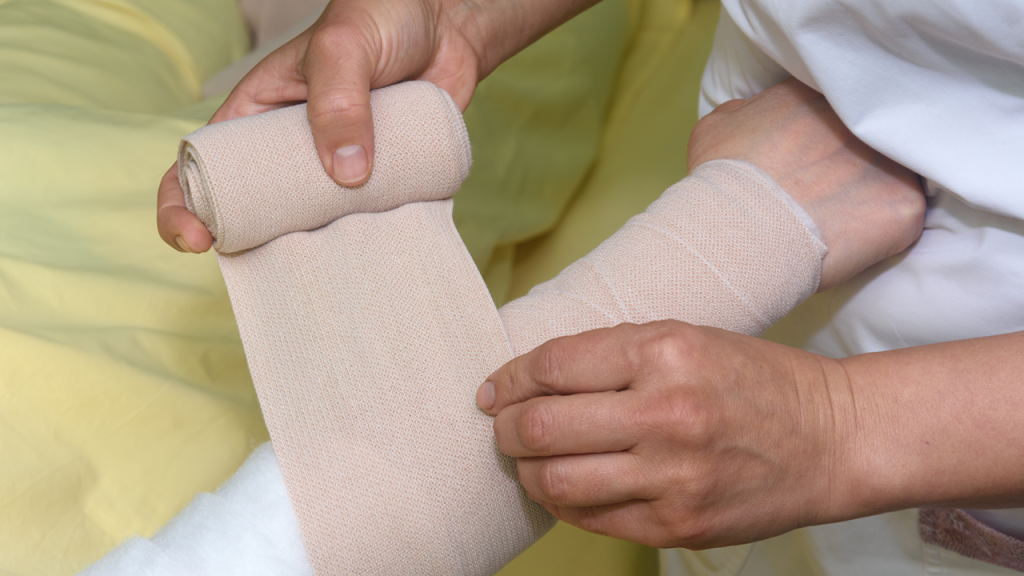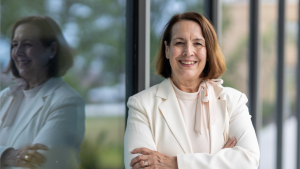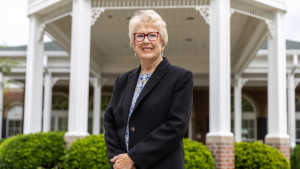As a two-time breast cancer survivor, Allison Anbari knows that the combination of chemotherapy, radiation, and surgeries that she endured during cancer treatment puts her at greater risk for developing lymphedema, a chronic condition of swelling caused by disruptions to the body’s lymphatic system. This usually occurs after the surgical removal of lymph nodes or radiation to the lymph nodes – common treatments for breast cancer.
With her own experience in mind, Anbari, an assistant professor in the University of Missouri Sinclair School of Nursing, conducted a study to better understand how rural Missourians are managing their lymphedema after surviving breast cancer. While rural and small-town survivors emphasized feelings of resiliency and self-reliance, they also reported a willingness to meet with therapists and implement personalized self-management strategies to help reduce swelling, while also going about their daily activities. When implemented, Anbari found that these strategies helped improve these survivors’ quality of life.
“If left untreated, excessive swelling from lymphedema can lead to mobility issues, pain and possible infections,” Anbari said. “Various treatment techniques include massaging affected areas of the body or wearing compression bandages. The goal of these self-management strategies is to move fluid from areas of the body with lymphatic damage to higher-functioning lymphatic areas, which can help reduce swelling.”
While interviewing study participants about their experiences managing this chronic condition, Anbari said many of the women with lymphedema became aware of particular daily activities that might trigger swelling or discomfort, such as lifting boxes at work or performing various chores and leisurely activities around the house. In response, the women would either delegate those tasks to colleagues or significant others to avoid discomfort, or wear their compression garments and massage affected areas before completing these tasks to reduce swelling.
“The more we hear from patients about their various experiences, the more we can learn about best approaches for self-management strategies,” Anbari said. “This research can increase awareness and education that provides breast cancer survivors with the tools they need to make lymphedema the least of their worries.”
Anbari added that as cancer treatments continue to improve, there will be a growing number of cancer survivors who are at an increased risk of developing lymphedema going forward.
“As this population of at-risk breast cancer survivors continues to increase, we can learn from survivors’ experiences to better tailor personalized care,” Anbari said. “One of my favorite responses I heard from a study participant was, ‘Breast cancer didn’t own me, and neither will my lymphedema’.”
“The impact of breast cancer-related lymphedema on rural and small-town survivors’ return-to-work and quality of life: A multiple-case study” was published in Cancer Treatment and Research Communications. Yuanlu Sun of University of Missouri-St. Louis was the co-principal investigator on the study and co-authors include Sarah McCaffrey, Jamie Morton, and Jane Armer of the MU Sinclair School of Nursing. Funding for the study was provided by Sigma, an international nursing honor society.




